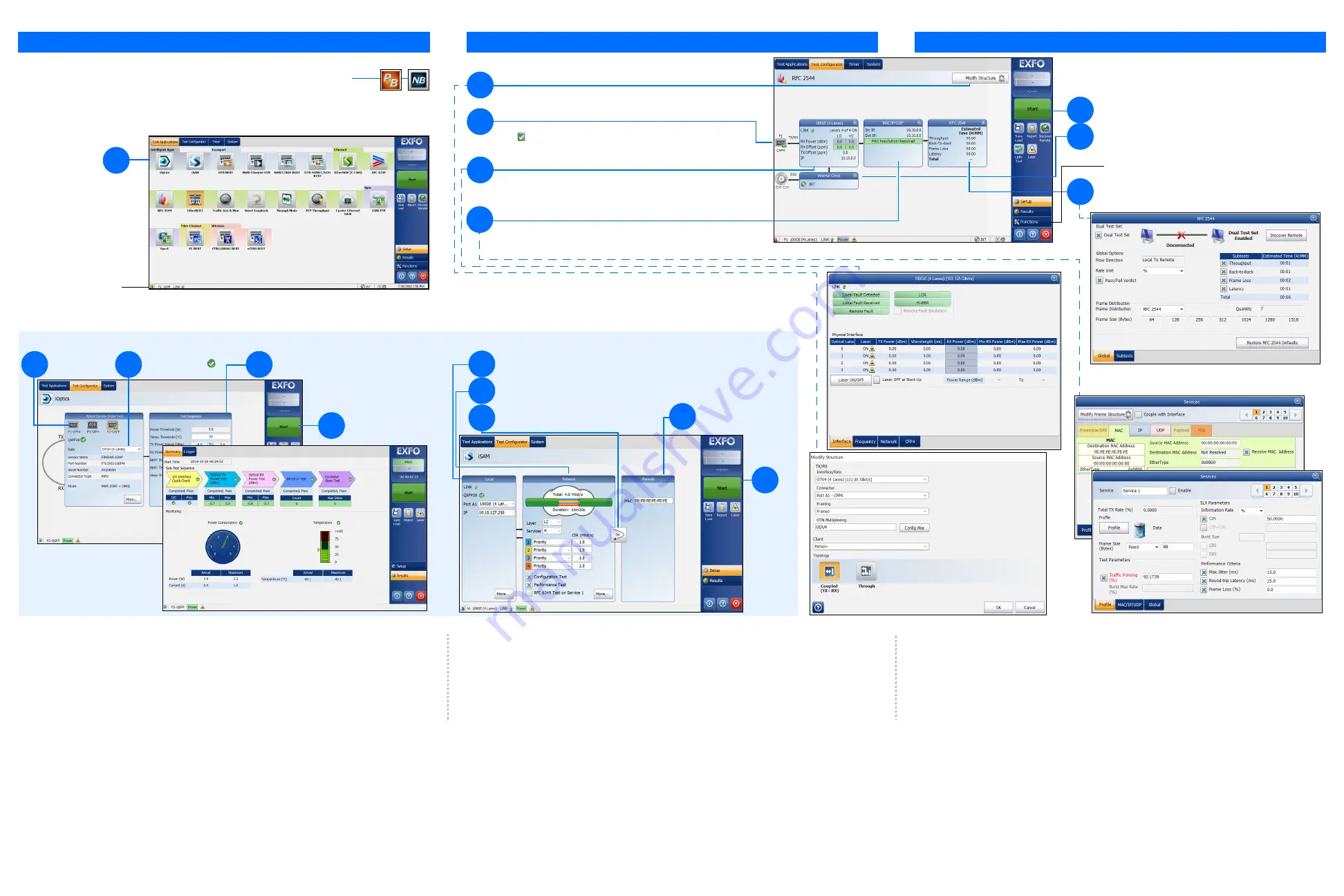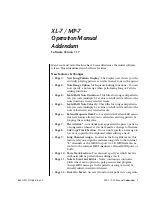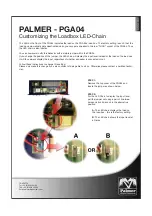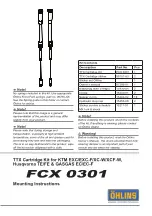
For Intelligent Apps:
For Transport, Ethernet, Packet Sync, Fibre Channel, and Wireless:
7
Note: For advanced testing, tap the
Functions
button.
Tap the
Modify Structure
button to set the basic structure of the test such as
interface/rate, connector, etc.
Tap the interface block to configure the interface/signal parameters. Ensure
that the link is up (except for Transport applications) and the power level
(when supported) is present in the status bar before proceeding to the next
step.
Tap the clock block to configure the clock synchronization.
Tap the
Start
button to start the test.
For CFP4/QSFP interface, check for the CFP4/QSFP optical validation check
mark
indicating that the CFP4/QSFP matches the configured
interface/rate.
3
Tap the test block to configure specific test settings.
This block is not present for all tests.
Tap the protocol block to configure either the frame structure and its
parameters for Ethernet test applications or the embedded signal for Transport
test applications. This block is not present for all tests.
8
4
5
2
6
Tap on a
test application.
1
Status Bar
Selecting, Configuring, and Starting a Test
Starting the Application
From
ToolBox X
, tap either the Power Blazer or the NetBlazer application button.
iSAM
2
Select the basic port parameters or click on
More
for full settings. Ensure that the link is up
and the power level (when supported) is present in the status bar before proceeding to the
next step.
3
Select the basic test parameters or click on
More
for all settings.
Select the remote operation mode:
Dual Test
Set
,
Remote Loopback
, or
Manual
Loopback
.
Select the basic remote
parameters or click on
More
for full settings.
Tap the
Start
button to start
the test.
6
5
4
iOptics
2
Tap the desired
port icon.
5
3
Once the transceiver is
correctly detected
,
select its rate.
4
Select the test parameters
and thresholds.
Tap the
Start
button
to start the test.




















